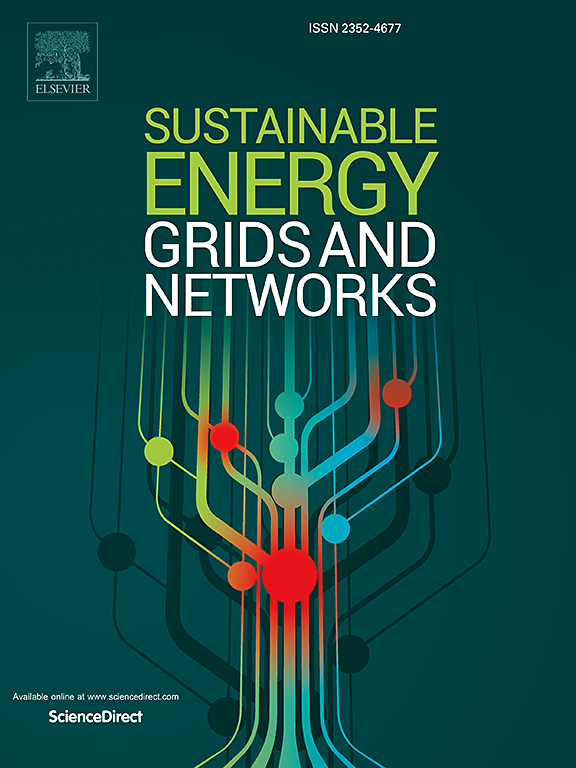考虑分布式能源的电动汽车快速充电站定价机制
IF 5.6
2区 工程技术
Q2 ENERGY & FUELS
引用次数: 0
摘要
对电动汽车日益增长的需求要求大规模部署快速充电站(FCS)。这些FCS所有者通常是私人投资者,专注于业务的增长。这迫使FCS设计一个合适的定价机制,以实现其财务目标,建立客户关系,并在考虑分布式能源(DERs)的同时保持市场竞争力。因此,在决定电动汽车在FCS充电的定价时,有必要制定一种全面的方法,以考虑所有利益相关者的利益。在此基础上,本文提出了基于动态市场价格的电动汽车在FCS充电的定价机制、扁平定价和动态定价。考虑到电动汽车用户的便利性、满意度和等待时间,建议的定价机制旨在保持FCS相对于无DERs的利润率不变。针对需求的价格弹性和电动汽车用户满意度,提出了价格-便利响应模型。研究表明,DERs下的两种定价机制同样有希望,因为它们产生了更具竞争力的价格信号,在保持FCS所有者的利润率不变的情况下,这些价格信号降低了11. %左右,在过载期间,电网能源需求减少了61.81 %,电动汽车用户的平均满意度增加了6. %。本文章由计算机程序翻译,如有差异,请以英文原文为准。
Pricing mechanism for EV fast charging stations considering distributed energy resources
The growing demand for electric vehicles (EVs) requires large-scale deployment of fast charging stations (FCS). These FCS owners are usually private investors and focus on the growth of their businesses. This enforces FCS to design a suitable pricing mechanism to achieve their financial goals, build customer relationships, and maintain competitiveness in the market while considering distributed energy resources (DERs). Therefore, there is a need to develop a holistic approach to keep the interests of all stakeholders in mind while deciding the pricing for EV charging at FCS. Hence, this paper proposes pricing mechanisms, flat and dynamic pricing for EVs charging at FCS considering DERs against dynamic market prices. The proposed pricing mechanisms are designed to keep profit margin of FCS remains same relative to no DERs considering EVs users’ convenience, satisfaction and waiting time. Price-cum-convenience responsive models are proposed for price elasticity of demand and EV users’ satisfaction. The study reveals that both pricing mechanisms under DERs are equally promising as they produce more competitive price signals which are around 11 % lower, up to 61.81 % reduction in grid energy demand during overload periods, and up to 6 % increment in mean satisfaction of EV users while keeping the profit margin intact for FCS owners.
求助全文
通过发布文献求助,成功后即可免费获取论文全文。
去求助
来源期刊

Sustainable Energy Grids & Networks
Energy-Energy Engineering and Power Technology
CiteScore
7.90
自引率
13.00%
发文量
206
审稿时长
49 days
期刊介绍:
Sustainable Energy, Grids and Networks (SEGAN)is an international peer-reviewed publication for theoretical and applied research dealing with energy, information grids and power networks, including smart grids from super to micro grid scales. SEGAN welcomes papers describing fundamental advances in mathematical, statistical or computational methods with application to power and energy systems, as well as papers on applications, computation and modeling in the areas of electrical and energy systems with coupled information and communication technologies.
 求助内容:
求助内容: 应助结果提醒方式:
应助结果提醒方式:


